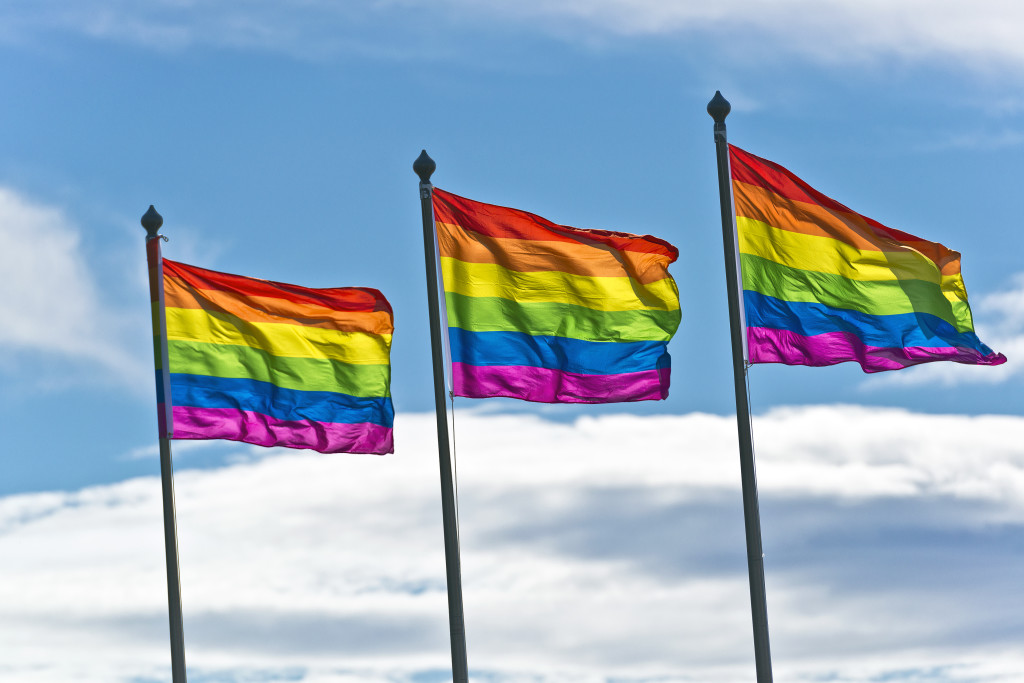
LGBTQ+ Christians and Your Church: 5 Steps Towards Hospitality
The above photo, “Reykjavik Pride”, is copyright (c) 2009 Lars Lundqvist and made available under a Attribution-Noncommercial-Share Alike 2.0 license.
“Responses to the question ‘Do you ever hear comments from church members that you believe would be offensive to people in your congregation who are attracted to the same sex?’ were . . . alarming: 61 percent of responding ministers said they had heard offensive comments from congregants, and 75 percent of non-heterosexual (self-identified as lesbian, gay, bisexual, queer, or same-sex attracted) respondents in the whole survey reported hearing offensive comments from church members.”
—The Report to Synod 2016 (CRC) from the Committee to Provide Pastoral Guidance re Same-sex Marriage
Before I begin, I would like to emphasize that the goal of this post is to start the conversation and provide a basis for further dialogue, not provide a posture to take towards LGBTQ+ persons. I am basing this goal on the church’s mandate of respect and dignity for all people through Christ.
Gay, homosexual, lesbian, bisexual, transgender, queer—the list could be longer if we included more derogatory terms—these are terms that are often muttered under people’s breath. In our church communities, LGBTQ+ people often do not find the sense of “safety” that churches are meant to host. For them, there is not always freedom from the fear of slander, put-downs, or hurtfully ignorant comments.
For those of you scratching your heads, LGBTQ+ stands for:
- Lesbian
- Gay
- Bi-sexual
- Transexual or transgender
- Queer (or questioning)
- And others who label themselves differently (the plus sign)
(For a more in-depth description of the acronym, click here.)
It’s not that the church doesn’t care about LGBTQ+ persons. We—as the church—pride ourselves in our ability to be hospitable. However, while we are excellent at offering hospitality to those already among us, we aren’t always the best at offering it to those who are different.
And this is the rub: there are likely LGBTQ+ Christians sitting with us on Sundays. So why aren’t we talking about it?
It’s because it’s uncomfortable, and as a denomination we have been known to oppose what most people simply call “homosexuality.” But, as this post hopefully demonstrates—there is far more to homosexuality than just a term.
At Diaconal Ministries Canada, we have been talking about this justice issue for nearly a year. Part of that year-long process was research towards building a new webpage for responding to LGBTQ+ people, regardless of whether they’re in the church or not.
So, without further ado, here are five steps that you and your church can take to be more welcoming to LGBTQ+ persons:
- Dig a little deeper. If you are straight, think beyond your own experiences and try to put yourself in the shoes of an LGBTQ+ person. Would you enjoy attending church? Would you feel welcome? Think about creating a Generous Space Group at your church (or with a group of churches).
- Listen to people’s stories. It’s easy to talk theology, but a lot harder to apply it in real life. It’s pointless to either affirm or not affirm positions relating to LGBTQ+ minority groups without hearing their stories first.
- Question your assumptions. It’s simple to assume that your theological views should apply to other people. Challenge your conclusions, and leave room for the Holy Spirit to work. It’s impossible for us, as humans, to absolutely know how God will work in a person’s life, especially a life on the margins. It’s also likely that an LGBTQ+ person is just as passionate about scripture and theology as yourself—not to mention they’ve probably had to endure a more intense struggle with certain aspects of that theology.
- Take LGBTQ+ people off of the podium. Homosexuality is not a sin to be put on a pedestal. If we are to be confronting homosexuality, how about we confront adultery, pornography, lust, and rape? We are all broken and sinful—accepting our own human condition is an important step towards accepting others, especially those who identify as LGBTQ+.
- Develop committed relationships, and learn how to journey together! This is the most crucial step anyone can take towards welcoming LGBTQ+ persons. By developing a relationship, the initial welcoming begins to include a degree of sustainability. Hospitality and justice are similar in this sense: they both require relationships, and relationships require transformation to be sustainable and fruitful.
Want to know more about justice and how to help your congregation live justly? Contact Dan Galenkamp, DMC’s Justice Mobilizer, at dgalenkamp@crcna.org.
For more information on LGBTQ+ people and how you can respond as a deacon, visit DMC’s LGBTQ+ webpage.



